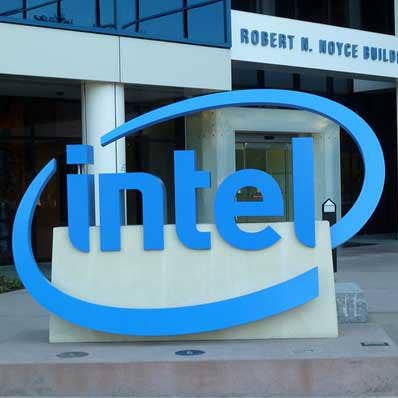Intel May Outsource Production Of Some Top Chips To Samsung, TSMC: Report
The reported discussions with TSMC and Samsung are happening as Intel faces pressure from hedge fund Third Point to explore strategic options, including potentially selling off ‘failed acquisitions’ and even the company’s manufacturing operations.

Intel may outsource production of some of its top chips to TSMC or Samsung Electronics in the future, according to a new report, as the chipmaker tries to fix issues with its own manufacturing capabilities.
Bloomberg reported Friday that the Santa Clara, Calif.-based semiconductor giant is in discussions with both semiconductor foundries about outsourcing production for products starting in 2023, though no final decisions have been made yet. The news outlet noted that Intel is hoping it will make a last-minute breakthrough in improving its 7-nanometer process, which suffered from a manufacturing defect last year that prompted a six-month delay in 7nm products.
[Related: 5 Big Statements In Hedge Fund Third Point’s Letter To Intel]
The news comes after Intel CEO Bob Swan said last October that the chipmaker would decide by January on whether Intel would expand its 7nm manufacturing capabilities or make orders with third-party foundries for future chip production — or do a combination of both. The company is expected to announce its decision in its fourth-quarter earnings on Jan. 21.
An Intel spokesperson referred to previous comments made by Swan, including remarks he made at an investor conference in December. At that conference, Swan said Intel will continue to be an integrated device manufacturer, though the company is exploring outsourcing for products starting in 2023 because of the issues with Intel’s 7nm process that has caused delays.
Spokespeople for TSMC and Samsung did not respond to a request for comment.
Bloomberg reported that discussions with Samsung are more preliminary than Intel’s talks with TSMC. TSMC already manufactures some of Intel’s products, including FPGA chips that stem from its acquisition of Altera. Intel announced last year that it plans to rely on external foundries for part or all of two future GPUs: the Ponte Vecchio chip for high-performance computing and a chip for high-performance gaming.
If Intel decides to increase its output at TSMC with higher-performance products, the chipmaker would do initial testing on the foundry’s 5nm node and then have chips manufacturing using the more advanced 4nm process, Bloomberg reported. TSMC has previously said it’s expected to begin volume shipments of 4nm products in 2022.
The reported discussions with TSMC and Samsung are happening as Intel faces pressure from hedge fund Third Point to explore strategic options, including potentially selling off “failed acquisitions” and even the company’s manufacturing operations.